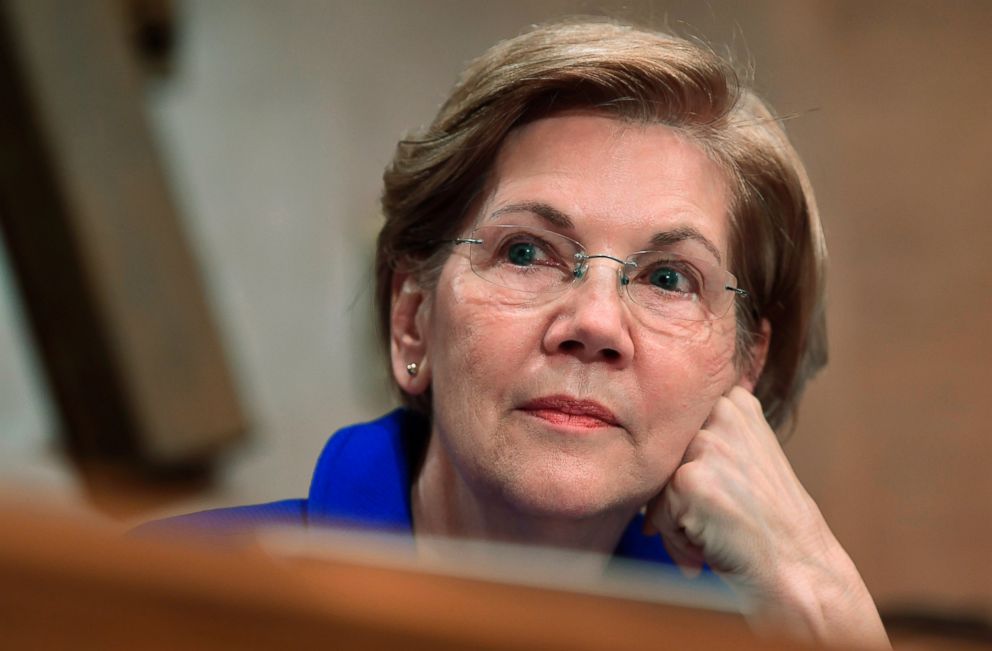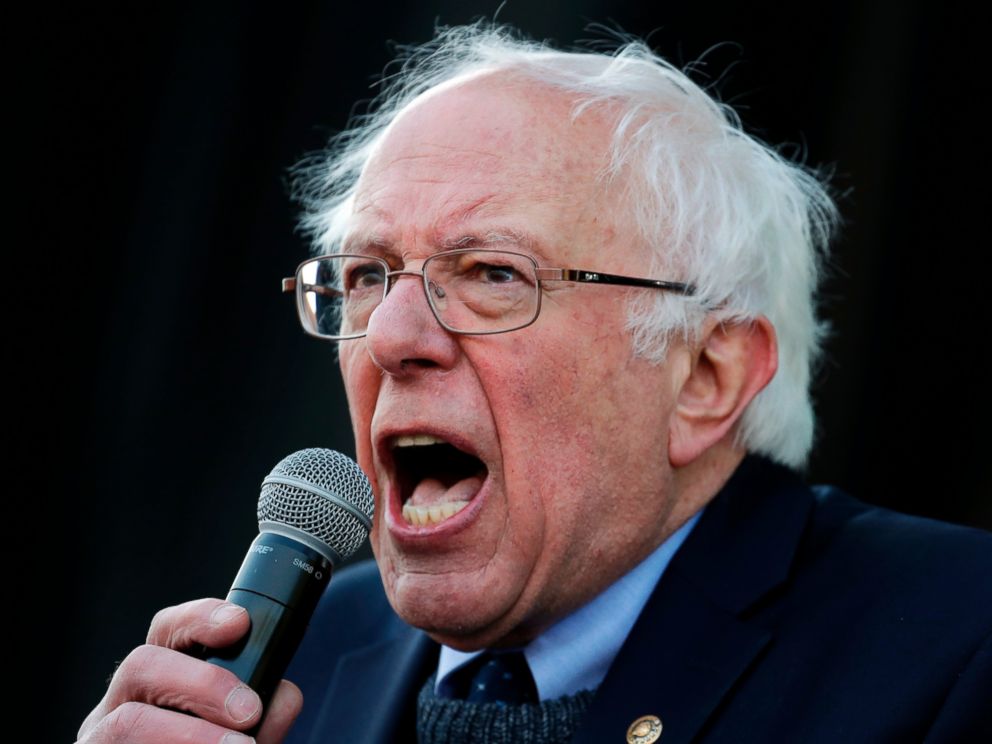Progressive candidates flood Washington for targeted training
A host of candidates are following the lead of Bernie Sanders.
People stood on chairs with their phones outstretched and fell into a familiar, excited chant.
“Bernie! Bernie!” they said together as Sen. Bernie Sanders, Vt.-I, came into the room.
Unlike the memorable, mega-events from his presidential campaign, with throngs of mostly young voters, a year and half later this room was made up of 450 fresh-faced, Democratic candidates seeking public office themselves, many for the first time.
The scene Thursday afternoon was a snapshot of the revolution the independent senator always wanted -- or at least the one he hoped for after his bid for the White House fell short -- coming to pass.

Candidates from 48 states, running in races big and small, gathered in Washington, D.C., for a four-day training session to learn tricks of the trade from some of the savviest grassroots organizers in the country with the hope of perpetuating a progressive brand of politics back home in their districts.
Sanders’ legacy political organization, Our Revolution, partnered with the Progressive Change Campaign Committee (PCCC) to host the conference and the organizers were excited by the number of signups. According to event representatives, 70 percent of the conference attendees were actively running in 2018 -- 64 percent of them in districts President Donald Trump won in 2016. The group was noticeably diverse too: 55 percent women, 40 percent people of color and 82 percent who have never held political office.
Since the 2016 election, Democratic organizations across the country have marveled in the dramatic uptick in interest among activists now seeking to run for office.
“The political climate has been turned upside down and I give credit to Bernie Sanders for that. You have working class people standing up and running for office and that is more important than ever,” Brianna Westbrook, an automotive sales representative now running for a seat in Arizona’s state Senate told ABC News between sessions at the event.
The training offered targeted lessons from seasoned campaign managers and consultants about the nuts and bolts of managing a campaign. The feedback for the individual trainees was granular and specific. Joel Silberman, a longtime political communications expert, who has worked with some of the biggest names in Democratic politics, gave advice on facial expressions, hand positions and word choices as the candidates practiced their stump speeches.
Screenwriters and Hollywood producers in a nearby room gave the candidates suggestions for how to make their stump speeches more compelling, including when to pause for dramatic effect.

The conference was six months in the making and the first time these two Progressive organizations partnered in this way. Our Revolution, which was formed right around the time of the 2016 presidential election, spent $200,000 on the event, according to its leadership team.
The PCCC did not endorse Sanders in the presidential primary. The group’s founders were some of the original backers of Sen. Elizabeth Warren, D-Mass. The organization, in fact, coined the phrase, “The Elizabeth Warren wing of the Democratic Party.”
Sanders and Warren both addressed the crowd Thursday.
Like Sanders’ team, the PCCC is known in Washington and political circles for talking openly about -- and fundraising on -- divisions in the Democratic Party between Progressives focused on economic populism and more centrists. Even in the era of Trump, when Democrats have largely unified in their opposition to this White House, a major theme of the conference was that Democratic candidates should not shy away from campaigning hard to the left, even if that means bucking advice from some Democratic Party officials.
“Any old blue just won’t do,” Nina Turner, the president of Sanders’ legacy political organization, Our Revolution, said introducing Sanders. “I am talking about ‘Bernie blue.’”
Several of the attendees lamented that Democratic Party officials had, they thought, handpicked more mainstream candidates around the country or advised folks to temper progressive platforms. At one point, PCCC co-founder Adam Green asked the crowd if any of them had been encouraged to run more to the center and half the hands in the room seemed to go up.
“Trust your gut. Trust your heart,” Sanders told the crowd during his remarks, adding that those in the audience should be weary of consultants who may suggest a more centrist message for their campaigns. “Take a look at the president of the United States and be sure you know far more than he will know on his best day.”
Sanders listed off progressive policy positions that were, until very recently, thought to be outside the mainstream Democratic Party platform, but which have gained considerable steam in the last two years, such as a single-payer, Medicare-for-all-style health care system and a $15 dollar per hour minimum wage.
Speaking to the group, Warren too walked through the political values that unite Progressives, including believing in protecting social security, climate change and that fundamentally corporations are not people and the landmark campaign finance case, Citizens United, should be overturned. The last line drew a standing ovation.
“We must win this fight and that means we leave no one behind. I want a Democratic Party that is strong enough to be in every race, in every county, in every state,” she told the crowd.
Continuing the theme of empowering insurgent Democrats, actress Cynthia Nixon, from the television show “Sex in the City,” who is running against the sitting Democratic governor of New York, will address the crowd Friday.
Both Sanders and Warren are, at this stage, taking the kinds of political steps elected officials often take when considering a presidential run, meaning a year from now there might not only be divisions and tensions between Progressives and the rest of the Democrats, but among Progressives themselves.
A considerable number of voters and organizers on the left were disappointed in the 2016 presidential race when Warren did not endorse Sanders, despite their overlapping policy positions. Still, Warren has a formidable following of her own.
Patrick Maguire, a Democratic Party official in Oregon, told ABC News he thought Warren was the better messenger for Progressive values, but that plenty of those activists and leaders in the ballrooms this weekend were excited by the momentum around Sanders.
Kristin Seale, running for state representative in Pennsylvania, said though she was a Sanders delegate in 2016, she would “vote for the woman” if it came down to Warren and Sanders.




